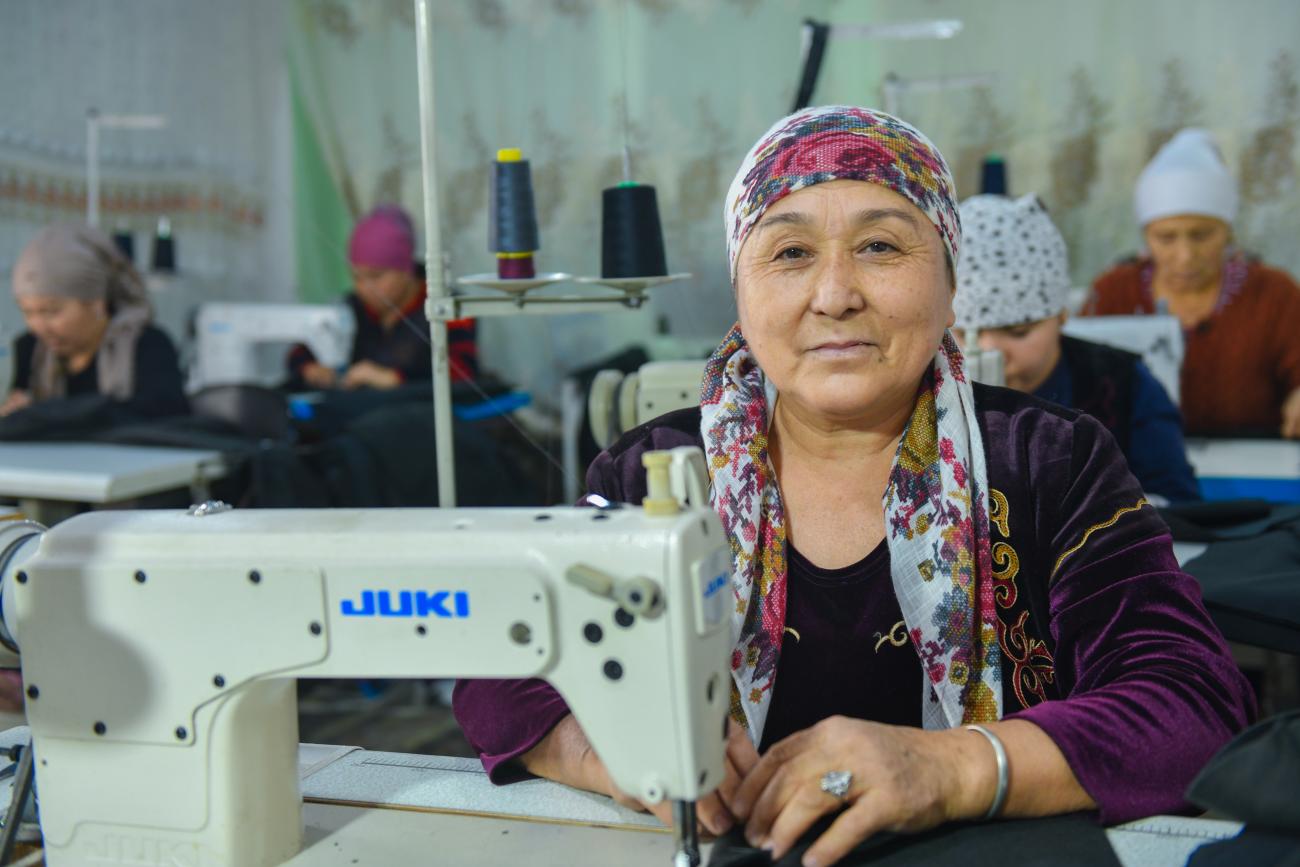Upnisa Madmarova, 60 years old, lives in the small village Chek-Abad of Osh province. Only a few years ago she pondered the simple idea of opening a workshop. But at that moment the dream seemed impossible.
“I wanted to be a role model for my children,” Upnisa says. At a turning point in her life, Upnisa decided for herself that she would do everything in her power to bring her family out of poverty. She decided no matter what happened to move always forward even if it were only one step ahead.
The general lack of job opportunities in rural areas, coupled with a low level of educational attainment and in an environment with a growing influence of traditional stereotypes, often confines rural women to unpaid home-based activities. The share of rural women that provide free labour on family farms – defined as “contributing family workers” – is increasing and as a consequence of this dynamic, lessens their opportunities to engage in paid employment. The limited access to basic utilities in rural areas particularly among poor households further increases the burden of duties on women’s shoulders.
Four UN agencies – UN Women, FAO, WFP and IFAD – launched the “Rural Women’s Economic Empowerment” Project aimed at improving food security, promoting income-generating activities, increasing participation in public decision-making and creating a gender-sensitive culture in society. The programme targets vulnerable rural women and those living below the national poverty line of 2700 KGS a month.
When Upnisa heard about the RWEE project she decided to immediately join, together with other women in her village. Upnisa successfully passed a series of training sessions within the project framework including classes on agriculture, leadership and entrepreneurship. A contest for best business proposal was also part of the training.
“I have been thinking about opening a sewing factory for a long time and wrote my business plan for a mini sewing workshop in my village.”
At the end of the contest, her proposal was chosen as one of the best business proposals and Upnisa’s new start-up was awarded four sewing machines. This is how “Cheber-Koldor”, meaning “women weavers”, Upnisa’s mini processing workshop, was created.
“And my life was divided into before and after.”
Upnisa’s goal was also to provide vulnerable women from poor families such income opportunities. Because the goal of her work wasn’t just business. “I have offered jobs to 15 women in the workshop as well as some women work long-distance for me. When I hear the laughter of our girls during working hours – for me this is success and my biggest victory.”
Like in every starting business, Upnisa has had difficulties. Upnisa realized the key to success is to never give up and work hard no matter what. What began with six sewing machines has now turned into a growing business - the clothing that is produced in this workshop is sold in her own community and far beyond.
“This project has made me understand the importance of learning and gaining new knowledge. It has given me confidence in my ambitions.”




